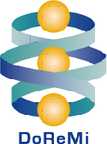-
Topics
subnavigation
Topics
Electromagnetic fields
- What are electromagnetic fields?
- Static and low-frequency fields
- Radiation protection relating to the expansion of the national grid
- High-frequency fields
- Radiation protection in mobile communication
Optical radiation
Ionising radiation
- What is ionising radiation?
- Radioactivity in the environment
- Applications in medicine
- Applications in daily life and in technology
- Effects
- What are the effects of radiation?
- Effects of selected radioactive materials
- Consequences of a radiation accident
- Cancer and leukaemia
- Genetic radiation effects
- Individual radiosensitivity
- Epidemiology of radiation-induced diseases
- Ionising radiation: positive effects?
- Risk estimation and assessment
- Radiation protection
- Nuclear accident management
- Service offers
-
The BfS
subnavigation
The BfS
- About us
- Science and research
- Laws and regulations
- BfS Topics in the Bundestag
- Links
International Co-operation
Network of Excellence: Low Dose Research towards Multidisciplinary Integration (DoReMi-NoE)
It was the aim of the DoReMi Network of Excellence (DoReMi-NoE) to develop research strategies, that allow for effective investigations of fundamental questions in radiation research:
- Shape of the dose response curve for cancer risk at low doses
- Differences in the individual radiosensitivity including age and gender dependency
- The risk for non cancer diseases at low doses.
- The DoReMi-NoE was significantly involved in the development of the Multidisciplinary European Low Dose Initiative MELODI.

There are still uncertainties when it comes to the assessment of risk following low doses of ionizing radiation and their contribution to cancer and non cancer diseases. To fill this knowledge gap is subject to interdisciplinary scientific studies as well as to sustainable fastening of research in the low dose area in Europe. This includes the identification of research needs and the initiation of respective scientific research projects as well as the safe-guarding of necessary infrastructure and the knowledge management in following generations.
It was the aim of the DoReMi Network of Excellence (DoReMi-NoE) to develop research strategies, that allow for effective investigations of fundamental questions in radiation research. There is urgent need to develop a long-term strategy due to the existing uncertainties in the assessment of radiation risk in the low dose area. This aspect has fundamental impact on radiation protection due to the fact that all population groups are exposed to low doses of radiation within their private surroundings and to some extend additionally in their professions or during medical examinations. The open questions of principle have already been identified by the “High Level Expert Group” (HLEG) and are related to:
- Shape of the dose response curve for cancer risk at low doses
- Differences in the individual radiosensitivity including age and gender dependency
- The risk for non cancer diseases at low doses.
Besides those scientific topics the network focused on:
- Development of strategies to comprise and maintain radiation related infrastructure
- Education and training of future radiation scientists.
The network coordinated research activities that were related to those topics on European level and will allow for efficient and long range research integrating different research areas like biology, epidemiology, physics and modelling. The survey on existing radiation related infrastructure in Europe, such as irradiation facilities, epidemiological cohorts and biobanks, will enable for an optimal usage of such fittings and to avoid unnecessary expenses. Moreover, the encouragement of students and young scientists will additionally help to maintain a sustainable basis for future radiation research.
Above all, the ongoing development of an interdisciplinary long-term stategic research agenda (SRA) will guarantee the sustainability of the basic approach. In this context, the DoReMi-NoE was significantly involved in the development of the Multidisciplinary European Low Dose Initiative MELODI.
The DoReMi project started in 2010 with 12 core partner organisations including the BfS. Beginning of 2015 this number increased to 37 partners, spread over whole Europe and Japan. The project had a run time of 6 years and was funded within the 7th framework program of the EU (grant agreement no. 249689).
State of 2018.04.05
- BfS' co-operation with international organisations
- OPERRA – Open Project for the European Radiation Research Area
- MELODI: Multidisciplinary European Low Dose Initiative
- High Level and Expert Group on low dose risk research
- Network of Excellence: Low Dose Research towards Multidisciplinary Integration (DoReMi-NoE)
- NERIS - European Platform on preparedness for nuclear and radiological emergency response and recovery
- Dose Datamed 2
- Towards a European Network of Excellence in Biological Dosimetry (TENEB)
- European Network on Education and Training in Radiation Protection (ENETRAP)
- European ALARA Network
- European Medical ALARA Network (EMAN)
- European Radiation Dosimetry Group (EURADOS)



